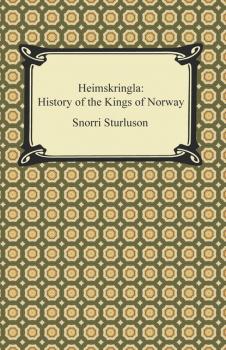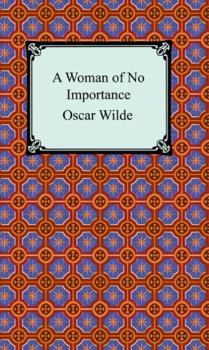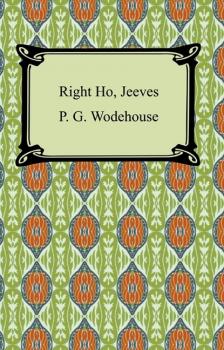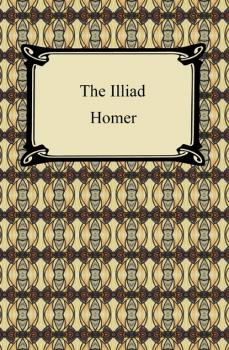MREADZ.COM - много разных книг на любой вкус
Скачивание или чтение онлайн электронных книг.Candide and Other Stories
"Candide" is the famous satire and best-known work by Voltaire. First published in 1759, «Candide» is the story of its central character who travels throughout Europe and South America experiencing and witnessing much misfortune on the way. It is within the clever construct of this narrative that Voltaire refutes the philosophy of Gottfried Wilhelm Leibniz, whose central idea was that life was the best of all possible worlds and that disasters, should they occur, were harbingers of better things to come. Voltaire found this philosophy insultingly ridiculous and within the humorous and satirical construct of this work he effectively exposes the idiocy of a philosophy that was so pervasive in his time. Also included in this volume are the additional short stories 'Micromegas', 'Zadig', 'The Huron (The Ingenu)', 'The White Bull', and the poem 'What Pleases the Ladies'.
Heimskringla: History of the Kings of Norway
Written in Old Norse by the Icelandic poet and historian Snorri Sturluson sometime around 1230 AD, the «Heimskringla» is one of the best known of all sagas. It is in actuality a collection of sagas concerning the various rulers of Norway, from about A.D. 850 to the year A.D. 1177. While scholars and historians continue to debate the historical accuracy of Sturluson's work, the «Heimskringla» is still considered an important original source for information on the Viking Age, a period which Sturluson covers almost in its entirety. Contained within this work are the following individual sagas: Halfdan the Black Saga, Harald Harfager's Saga, Hakon the Good's Saga, Saga of King Harald Grafeld and of Earl Hakon Son of Sigurd, King Olaf Trygvason's Saga, Saga of Olaf Haraldson (St. Olaf), Saga of Magnus the Good, Saga of Harald Hardrade, Saga of Olaf Kyrre, Magnus Barefoot's Saga, Saga of Sigurd the Crusader and His Brothers Eystein and Olaf, Saga of Magnus the Blind and of Harald Gille, Saga of Sigurd, Inge, and Eystein, the Sons of Harald, Saga of Hakon Herdebreid («Hakon the Broad-Shouldered»), and Magnus Erlingson's Saga.
A Woman of No Importance
"A Woman of No Importance" is Oscar Wilde's classic comedic play. The woman of no importance is Mrs. Arbuthnot, a woman who has been scorned by society for having an illicit affair and conceiving a child out of wedlock. «A Woman of No Importance» is both a criticism of the shameful double standard applied to men and women in such matters and a biting satire of the hypocrisy of the upper classes in Victorian Society.
The Cat of Bubastes: A Tale of Ancient Egypt
"The Cat of Bubastes" which is set during 1250 BC is one of G. A. Henty’s most popular works. When the Rebu nation is conquered by the Egyptians and their king is killed, the young prince Amuba is carried away as a captive to Egypt, along with his faithful charioteer, Jethro. When the young prince accidentally kills the successor to the Cat of Bubastes, one of the most sacred animals in Egypt, the two are forced to flee and attempt to return back to their homeland. A captivating tale of adventure set during the height of the Egyptian empire, «The Cat of Bubastes» will entertain and delight fans of the historical fiction genre.
Right Ho, Jeeves
"Right Ho, Jeeves" is P. G. Wodehouse's full-length novel featuring his most beloved character, Jeeves. At the outset we find Bertie Wooster returning from Cannes to discover that Gussie Fink-Nottle has been regularly visiting Jeeves to ask his advice in matters of the heart. Gussie is in love with Madeline Bassett, the friend of Angela Travers who is the daughter of Bertie's Aunt Dahlia Travers, and is intent upon courting her. As one would expect with Wodehouse's Jeeves stories, all kinds of hilarious hi-jinks ensue.
Politics
Aristotle's «Politics» is a treatise on the subject of political science and government and is considered to be one of the greatest works on the subject from classical antiquity. Expounding upon, «The Republic», the earlier work of his teacher Plato, Aristotle examines the various options for governance and their respective values. A detailed and pragmatic approach to the subject, Aristotle's «Politics» provides much of the foundation for modern political thought. Great insight for the modern student of political science can be found in this classic work on the subject.
Niels Lyhne
As one of the great authors of the Danish language, Jens Peter Jacobsen body of work is small, including just two novels, seven short stories, and a volume of poetry. Considered his masterpiece, «Niels Lyhne» follows the struggles of an aspiring poet. Torn between a childishly idealized vision of the world and the more practical demands of adulthood in the modern world, the titular Niels's struggle is one of faith versus reason, of romanticism versus realism, and ultimately one of loneliness in a godless world. As a foundational work of the Naturalist literary movement «Niels Lyhne» greatly influenced the works of Henrik Ibsen, Hermann Hesse, Thomas Mann, and Rainer Maria Rilke; and firmly established Jens Peter Jacobsen in the history of Danish literature.
Andersen's Fairy Tales
The Fairy Tales of Hans Christian Andersen having delighted readers young and old for decades. Collected here are some of his most love tales. This collection includes the following tales: The Emperor's New Clothes, The Swineherd, The Real Princess, The Shoes of Fortune, The Fir Tree, The Snow Queen, The Leap-Frog, The Elderbush, The Bell, The Old House, The Happy Family, The Story of a Mother, The False Collar, The Shadow, The Little Match Girl, The Dream of Little Tuk, The Naughty Boy, and The Red Shoes.
The Iliad (The Samuel Butler Prose Translation)
"The Iliad" is a classical epic poem about the events during the last year of the Trojan War and the fall of Troy. The tale revolves around the Greek warrior Achilles, and his anger toward the king of Mycenae, Agamemnon. While the poem shows evidence of a long oral tradition and thus most likely multiple authors, the ancient Greek poet Homer is generally attributed as its author. «The Iliad», which is thought to be the oldest extant work of literature in the ancient Greek language, is considered one of the most important literary works of classical antiquity. Presented here in this edition is the prose translation of Samuel Butler.
Mithridates
The 17th century dramatist Jean Racine was considered, along with Molière and Corneille, as one of the three great playwrights of his era. The quality of Racine's poetry has been described as possibly his most important contribution to French literature and his use of the alexandrine poetic line is one of the best examples of such use noted for its harmony, simplicity and elegance. While critics over the centuries have debated the worth of Jean Racine, at present, he is widely considered a literary genius of revolutionary proportions. In this volume of Racine's plays we find «Mithridates», the eighth of twelve plays by the author. In this drama Racine draws upon the historical figure of Mithridates who is remembered as one of the Roman Republic's most formidable and successful enemies. Having reigned over the kingdom of Pontus, around the Black Sea, Mithridates was famous for having gradually immunized himself to poisons. Popular in its day being a favorite of King Louis XIV, the play has become increasingly rare on stage over the past centuries.









